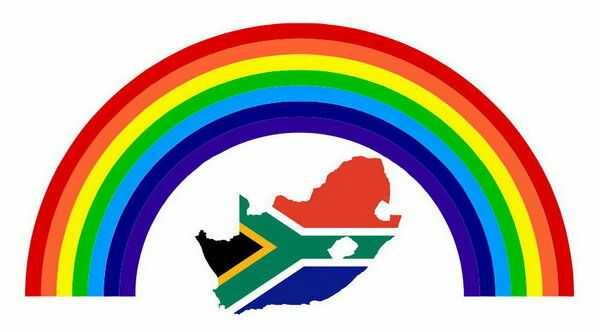Coming out of the closet in South Africa.
The Rainbow Nation, South Africa, celebrates 20 years of democracy. Along this journey human rights were a big priority. The LGBTQI community wasn't locked outside. I have lived long enough to witness the change and gay rights being constituted.
The major question has been raised. A question that makes our country a rainbow nation, issue of race. We are called a rainbow nation due to our various races; Black, White, Colored, Indian, and Chinese. After 20 years, does race still matter in our country?
Our history has left the black population in our country in a critical economic state. 20 years hasn't been long enough to close the gap between the previously oppressed and the previous oppressors. Approximately 65% of black people live in rural areas, with very little income or no income at all. With poor quality of education and inadequate health care services. About 35% live in squatter camps and RDP houses in townships. The remaining 10% are the fortunate ones that managed to pull themselves up and occupy not even a quatar of suburbs in South Africa.
Where am I going with all this background? Well, when looking at issues faced by the LGBTQI community, we cannot neglect these important matters and how they shape our experiences today. There's been very popular phrases when tackling the issue of our history and how it impacts us today. Some will say "don't play victims black people, it's all in the past" some will emphasize the "get over it already" phrase. However, it's not all in the past as we are, as blacks, still recovering and there's still a long way to go.
Now back to the main theme of this article, coming out of the closet as a black lesbian. This is not just an issue patterning one's sexuality; it is accompanied by political struggle. Coming out of the closet is hard for almost every gay person universally. When one comes out, they're risking everything they have, losing family, friends, in some instances a job or school, most importantly their life. Of course there's a small percentage that has been very lucky to not be subject to the harsh realities of coming out.
Bouncing back to the rainbow nation. Now we can safely say that the rainbow doesn't just represent different races, but different levels of economic status of the citizens, the black population in particular. As highlighted earlier, black people occupy areas with a very poor standard of living. With lack of literacy. Now imagine a black lesbian who is poverty-stricken, with insufficient education, living in the rural area where little is known about human rights which include gay rights. Let alone the absence of knowledge about lesbians as normal human beings. Some choose to bury that part of themselves, some live it in secrecy just to avoid shame and being considered a witch and stoned to death.
For those who are very resilient, who managed to push through such difficulties and make it through to a higher education level at least can take a breather. What do I mean by this? Universities and college institutions are located in big cities. So, after matric, they move from rural to big cities where being lesbian is not so taboo. Even those from townships gain a sense of freedom once they're enrolled in universities. We can safely state that these institutions are more accommodating. There's less hate crime and more tolerance, (not acceptance) of gay individuals.
This leads to one person living two different lives. You can be out of the closet at university but for some people it ends there. You pack yourself back into the closet every time you go home and when you have completed your studies. It takes an extraordinarily brave person to remain out of the closet when back home.
There are some jobs that would highly advise you to keep your sexuality to yourself, just to protect the reputation of the company or institution. Given some people's economic background, there's a great desperation for an income, so they have to hide their sexuality to keep their jobs.
Not even half the population of the black youth make it to college or university level due to financial constraints. Quite a vast number remain in the rural areas, living in the closet. Some are forced to marry men. This is more popular in areas where arranged marriage still prevails. In some black cultures, arranged marriage is the only way. There are many lesbians whose voices are silenced in the name of culture. Not everyone has a "rebellious" bone in them.
Sometimes an oppressor will tie your feet and hands together while your mouth is duck taped. You can't say the oppressed plays victim because victim is what they actually are. It will take more than constitution to free our fellow gays and lesbians in South Africa. 20 years is certainly far from being enough. Better education for all will liberate minds and gain a sense of identity and knowing one's rights. Economic stability is certainly the first step to freedom and equality.
